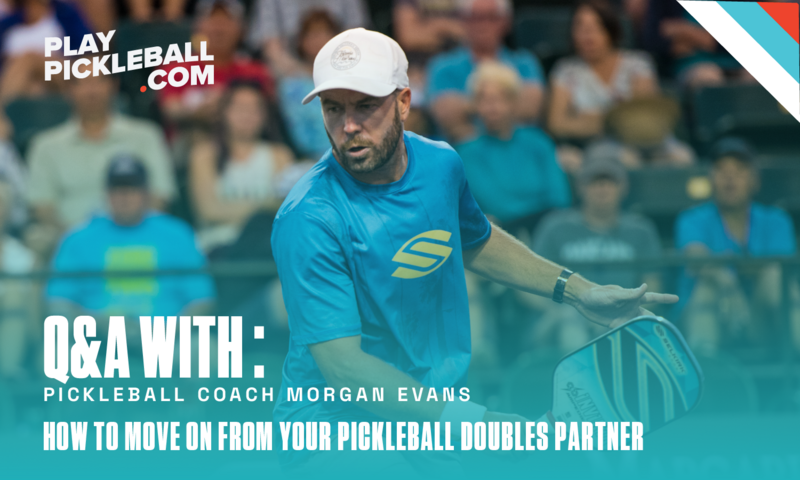Question:
When should I move on from my doubles partner, and how do I tell them?
Answer:
Oooo, a juicy one..thanks for asking! There’s a time and a place for everything, usually college ;-). In the wonderful game of pickleball, lifelong partners are as rare as Don Stanley calmly calling a foot fault, which is to say, it doesn't happen.
In most partnerships, much like romantic relationships, there is a ‘reacher’ and a ‘settler’. Which are you? If you’re the settler and tired of settling for your partner's missed 3rds, whiffed overheads, and crosscourt dinks that barely make the middle of the net, it’s time! It’s time to set that person free. Here are a few of the telltale signs that you should consider moving on:
- You start getting invited to higher-level games, but your partner doesn’t.
- Your partner sees the vast majority of balls when you play tournaments or competitive games together.
- You catch them sobbing in the locker room after yet another 2 and out.
The important thing is to rip the bandaid off quickly, don’t wait. Explain to your partner that staying together isn’t the best thing for either of you for a couple of key reasons:
- Firstly, neither player is forced to evolve by being exclusive. When two players only ever play together, they learn to complement each other's game. A natural Yin and Yang relationship emerges that helps make the sum of two halves equal more than the whole. What doesn’t happen, however, is adaptation. Neither player needs to exercise a full complement of shots, movements, or strategies. Only by changing partners do you realize that you need to be able to dink down the line, bake and not shake, or hit that elusive ATP.
- Secondly, if their pickleball experience is largely marked with being picked on, then the host of associated negative emotions could cripple their confidence. Fear, anxiety, threat avoidance, agitation, impatience … These are but a few cognitive symptoms that a ‘reacher’ will be feeling when they buckle under the pressure of 19 straight crosscourt dinks! Cut them a break by cutting them loose and trust that when they land on their feet, and find a player closer to their level, those symptoms will alleviate and they may indeed thank you for it.
Ultimately, this is your journey and if your continued development is a goal, then you owe it to yourself to play with whoever helps you do that, and enjoy the game along the way. Maybe you learned the game together, maybe once upon a time they were better than you, or maybe you simply live nearby. No one should feel beholden to another so don’t let whatever brought you together hold you back any longer.
Zero zero two!
- Morgan Evans

